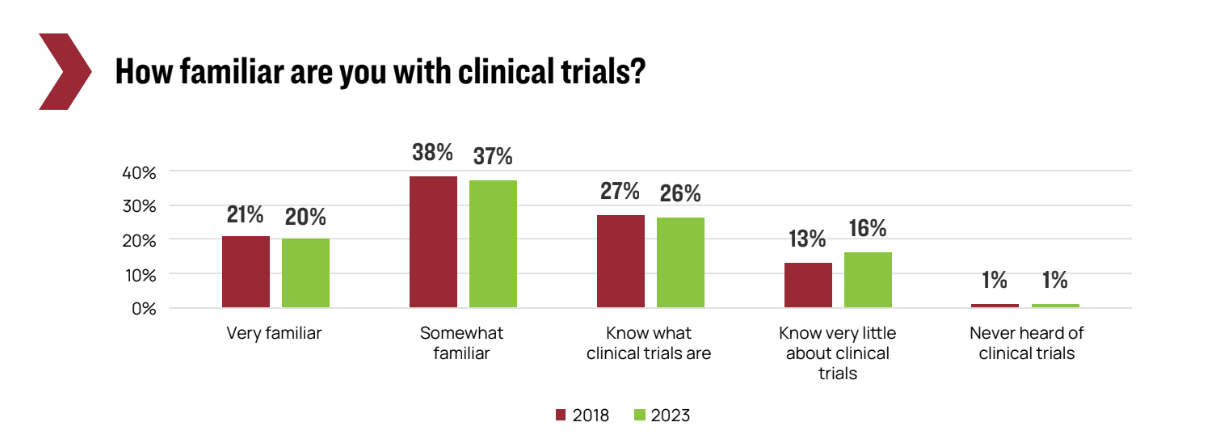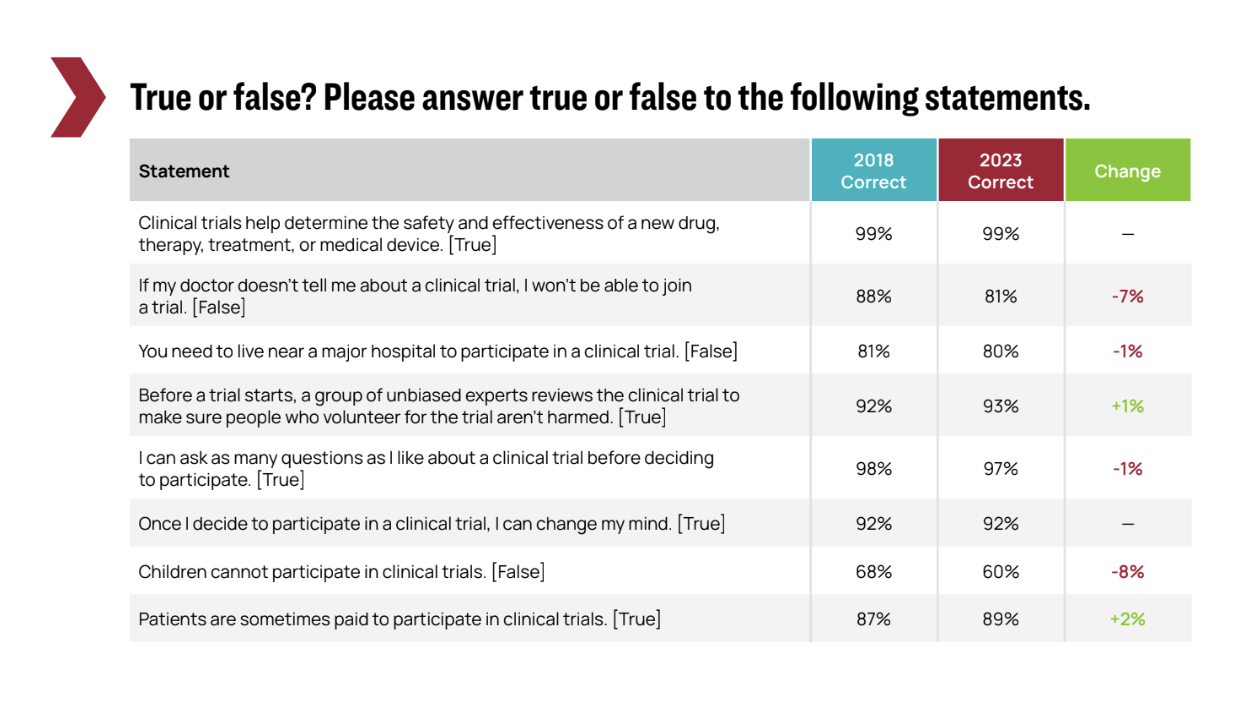What do patients know about clinical trials? [Antidote 2023 survey data]

In the third quarter of 2018, we conducted a survey with SCORR Marketing to learn more about the patient perception of clinical trial participation. This extensive survey involved nearly 4,000 patients from our patient advocacy group partners and provided valuable insights into the demographics of these individuals, their motivations for engaging in research, and what matters most to them throughout the course of a clinical trial.
Fast forward five years and one global pandemic later, we have designed a second patient survey with a smaller scope but a similar objective: to connect with patients through our advocacy partners and uncover their motivations, and discern any notable changes that might have occurred since 2018. For this survey, we collaborated with the American Kidney Fund, Beyond Celiac, the Global Allergy & Airways Patient Platform, JDRF, and the Multiple Sclerosis Association of America to find eligible participants.
This blog will specifically focus on changes in responses to questions relating to patient knowledge. This includes assessing their awareness of clinical trials and what statements about research they believe to be true. Throughout the remainder of the year, we will be sharing data and analyzing other specific findings from the survey results. However, if you want to access the full report with all of our findings, it’s available now.
Understanding patients’ knowledge of clinical trials
One of the biggest challenges to medical research is the myths and misconceptions patients have about clinical trial participation. Because there is a lack of understanding about clinical study participation, many individuals incorrectly believe that they are ineligible to participate in research, or that the process will be a costly and time-consuming endeavor. Fortunately, by better understanding what the various misconceptions are and where they stem from, industry professionals can take action toward providing education and outreach that dispels these myths.
Patients’ familiarity with clinical trials
In our 2018 survey, 86% of survey respondents reported being aware of clinical trials, and 59% reported being “somewhat” or “very familiar” with them. In the 2023 study, 83% of respondents said they were aware of clinical trials, while 57% stated they were “somewhat” or “very familiar” with them.

Though this is a slight decline compared to previous data, it is important to note that this rate is still much higher than the national average — in a 2020 Health Information National Trends Survey, only 59% of respondents reported knowing something about clinical trials. This change may be due to the fact that the respondents to this survey were sourced through patient advocacy groups that tend to engage with their communities and share information about research participation regularly.
Common clinical trial myths
Respondents were asked to rank statements about clinical trials as true or false. Statements related to the purpose of trials, the location of trials, and the extent of informed consent — see the graph below for the full assortment of questions.

Though the majority of respondents did answer the statements correctly, it is clear that there is still a clear need to better educate the public on who can participate. Patients’ knowledge of paid clinical trial opportunities increased by 2% since 2018, but only 60% of respondents correctly answered that children can participate in clinical trials, a -8% change from the previous survey. Additionally, there was a 7% reduction in the number of patients who were aware that clinical trial information did not have to come from their doctor — a key barrier that could potentially prevent many from seeking out research opportunities on their own.
At Antidote, we believe that getting to know patients is one of the most important components of clinical trial recruitment — and one of the ways we are able to achieve this is through surveys like this. By collaborating with SCORR and our partner network, we’re able to collect actionable data that can transform outreach efforts. If you’re interested in receiving the full report for even more insights, click the link below to download it:
Topics: For Sponsors
